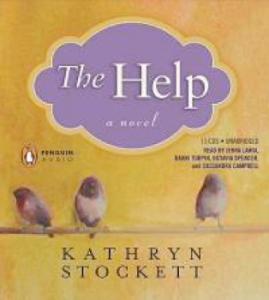My favorite books are the ones where the characters are genuine, the plot compelling and not totally predictable, the story world so vivid I enter it, and the issues raised so realistically presented that I think about them long after finishing the book.
The Help did all those things. Stockett brings the the era to life, and the depth of her research is obvious. So many little touches, like a TV commercial sponsored by the US Postal Service urging watchers to include the five number zip, zip, zippy, zip code when addressing mail, adds authenticity to the book. (The fact that I remember watching those commercials as a child makes me feel old, but I’ve forgiven Stockett for the indignity.)
The author exposes the evils of the early 1960s Jim Crow south without sugar-coating. She weaves historical events such as the assassination of Medgar Evans and Martin Luther King’s March on Washington into the plot without making all whites evil and all black people saints. Kathryn Stockett’s heroines weren’t completely good and her villains weren’t completely evil. They were real people making real choices – some good, some bad, some totally unexpected – in the complex and changing world of 1960’s Jacksonville, Mississippi.
Perhaps the best thing I can say about this book is that I didn’t want it to end. Stockett did what the authors of Peace Like a River and Water for Elephants also did for me. She created characters I could befriend. And when I turned to the last page, I was sad to say good-bye to Miss Sketter, Aibilene and Minnie, the three women who told their stories in The Help.
You really should meet them. You’ll be glad you did.


